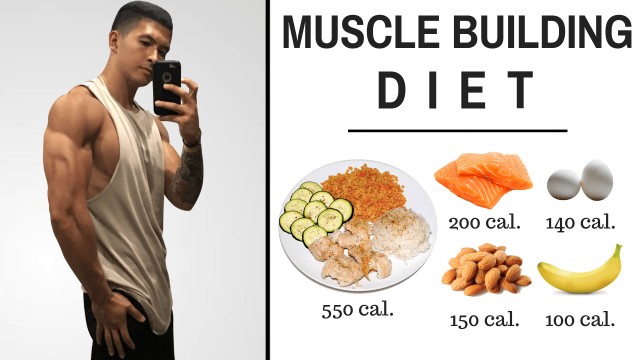Blitz News Digest
Stay updated with the latest trends and insights.
Fueling Your Gains: The Secret Ingredients to a Mass Gain Diet
Unlock the secret to packing on muscle with our ultimate mass gain diet! Discover must-have ingredients for explosive gains!
Top 10 Nutrient-Dense Foods for Building Muscle
Building muscle requires a balanced diet rich in nutrient-dense foods. These foods provide the essential vitamins, minerals, and macronutrients necessary for optimal muscle growth and recovery. Here are the top 10 nutrient-dense foods that can help you achieve your fitness goals:
- Eggs - Packed with protein and healthy fats, eggs are a complete source of amino acids.
- Quinoa - This whole grain contains all nine essential amino acids, making it a great plant-based protein source.
- Salmon - Rich in omega-3 fatty acids, salmon not only aids in muscle recovery but also supports heart health.
- Greek Yogurt - A fantastic source of protein and probiotics, it helps in digestion and muscle repair.
- Chicken Breast - Lean and versatile, chicken breast is one of the most popular choices for muscle building.
- Spinach - High in iron and nitrates, spinach enhances muscle function and energy production.
- Lentils - Full of protein, fiber, and essential nutrients, lentils are an affordable option for muscle gain.
- Almonds - These nuts are perfect for snacking, providing healthy fats and protein to fuel workouts.
- Sweet Potatoes - Rich in complex carbohydrates, sweet potatoes provide the energy needed for intense workouts.
- Broccoli - A cruciferous vegetable high in fiber and vitamins, broccoli supports overall health and muscle function.

How to Calculate Your Daily Caloric Needs for Mass Gain
Calculating your daily caloric needs for mass gain is essential for anyone looking to increase their muscle mass effectively. To start, you'll need to determine your Basal Metabolic Rate (BMR), which is the number of calories your body requires at rest to maintain basic physiological functions. You can use the Mifflin-St Jeor equation to estimate your BMR: For men: BMR = 10 * weight(kg) + 6.25 * height(cm) - 5 * age(y) + 5 and For women: BMR = 10 * weight(kg) + 6.25 * height(cm) - 5 * age(y) - 161. Once you have your BMR, multiply it by your activity factor (ranging from 1.2 for sedentary to 1.9 for very active) to find your total daily energy expenditure (TDEE).
After calculating your TDEE, the next step is to add a caloric surplus to promote mass gain. A good starting point is to increase your daily caloric intake by 500 calories, which should generally lead to a gain of around 1 pound per week. However, it's important to adjust this value based on your individual progress and body composition changes. Monitoring your weight weekly and adjusting your caloric intake accordingly will ensure you are effectively gaining muscle without excessive fat gain. Remember, consistency is key, and coupling your caloric surplus with a well-structured strength training program will yield the best results.
The Ultimate Guide to Macronutrients: What You Need for Effective Bulking
When it comes to effective bulking, understanding macronutrients is crucial for optimizing your muscle gains. Macronutrients are the nutrients that provide your body with energy and include proteins, carbohydrates, and fats. Each plays a vital role in muscle growth and overall health. As you embark on your bulking journey, aim for a diet that prioritizes the right balance of these macronutrients. A typical macronutrient ratio for bulking might consist of 25-35% protein, 45-60% carbohydrates, and 15-25% fat, depending on your personal goals and body composition.
To ensure you are consuming enough macronutrients, consider incorporating a variety of food sources into your meals. Here are some excellent options to include:
- Protein: Chicken breast, beef, fish, eggs, legumes, and dairy products.
- Carbohydrates: Rice, oats, whole grain bread, fruits, and vegetables.
- Fats: Avocados, nuts, seeds, olive oil, and fatty fish.
By paying close attention to these macronutrient sources and adjusting your intake appropriately, you will set the foundation for successful and sustainable bulking.